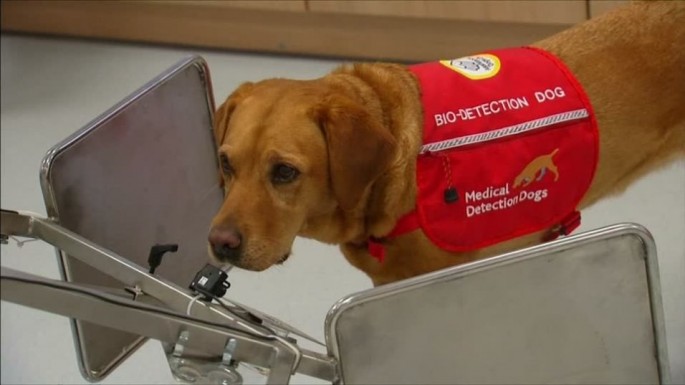Often referred to as humans' "best friend," dogs already help them by serving as pet companions, guarding homes, and tracking missing people. Canines will now use their keen sense of smell to assist doctors at Great Britain's National Health Service in a trial to learn if they are able to sniff out prostate cancer cells.
A dog can smell much better than humans, due to the number of olfactory receptors (scent glands) they have. Pooches have 300 million sensory receptors, while humans have 5 million, according to Reuters.
That allows the animals to detect odors that have been linked to various types of cancer. The strong smells originate from the organic compounds that malignant cells produce.
Medical Detection Dogs, a United Kingdom (UK) charity, was launched in 2008 to train dogs to pick up the scent of developing cancer. Early tests showed that the dogs could detect prostate tumors in 93 percent of cases.
Milton Keynes University Hospital has approved more clinical trials. After six months of training the dogs can detect traces of cancer cells in urine samples.
The dogs are trained by using a machine that stores eight urine samples. When the canine detects the container with cancer cells, it takes actions such as barking or sitting down. They are first trained to detect the urine scent, and then the cancer cells' smell.
The dogs would be used as a second-line method of cancer screening. Currently the prostate cancer test, which has a high false positive rate, analyzes a blood sample for the prostate specific antigen (PSA) protein, according to Youth Health Mag.
Dr. Claire Guest, co-founder of Medical Detection Dogs, explained that dogs are actually revisiting a disease diagnosis method that existed centuries ago. People knew that smelly compounds were linked to bio-chemical changes.
Dogs are now just being used to detect prostate cancer. However, doctors might later use their keen sense of smell to detect other types of diseases.
This video explains how dogs smell:



























